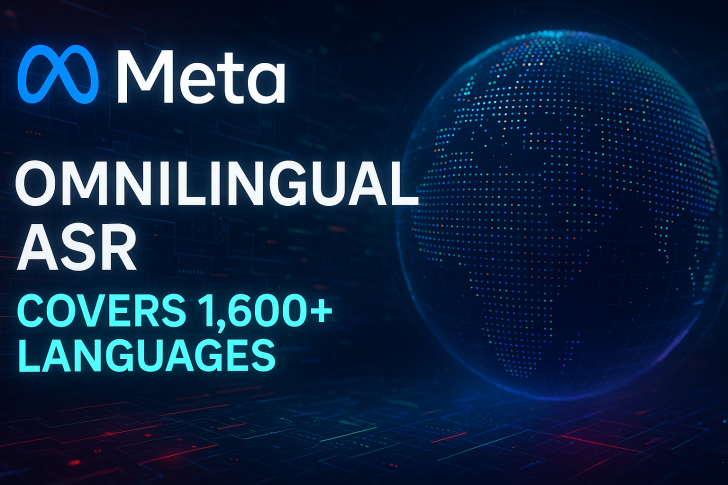⬤ Meta's new Omnilingual ASR system brings speech recognition to over 1,600 languages, with 500 of those getting ASR support for the first time ever. This isn't just about adding a few more popular languages—it's about reaching communities that have been left out of AI development entirely. The move puts Meta front and center in the push to make AI more inclusive and accessible globally.
⬤ The real story here is coverage. Most ASR systems focus on a handful of widely spoken languages, leaving massive gaps for the rest of the world. Meta's suite of models aims to fix that by supporting languages that have little to no presence online or in existing AI datasets. For developers and businesses trying to build voice interfaces in underserved markets, this could be a game-changer.
⬤ Meta describes Omnilingual ASR as "a suite of models" rather than a single system, emphasizing breadth over performance benchmarks. The focus is on access—getting basic transcription capabilities to languages that previously had none. It's framed as progress toward a truly universal transcription system, though details on accuracy, commercial availability, or rollout timelines weren't included in the announcement.
⬤ For investors, this signals that Meta (META) sees speech technology as a core part of its AI strategy. Broader language support could expand Meta's developer ecosystem and user base, opening doors in customer service, accessibility tools, education, and content creation. While the announcement is light on specifics, it shows Meta is investing in infrastructure that could strengthen platform engagement and competitive positioning across global markets long-term.
 Peter Smith
Peter Smith

 Peter Smith
Peter Smith


